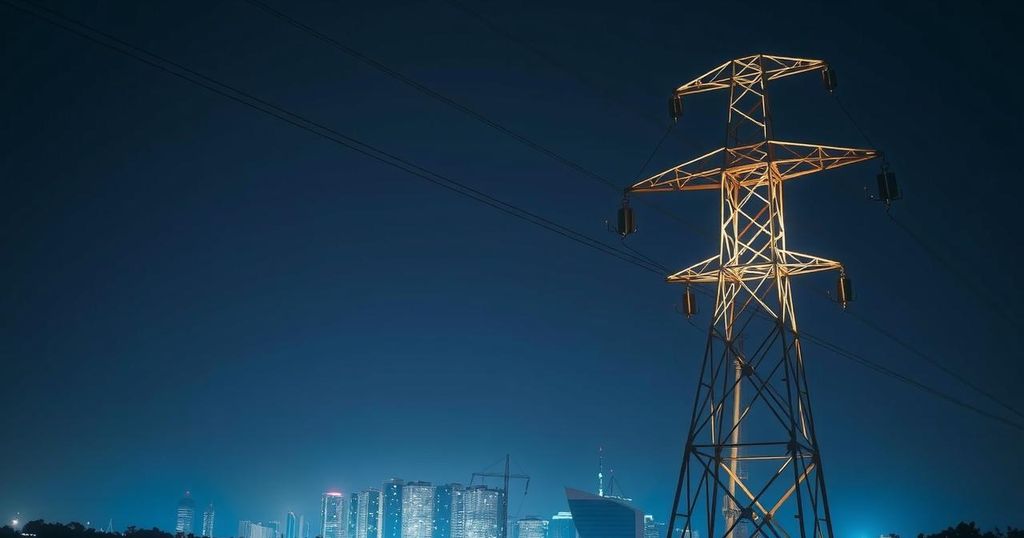Chile has mostly restored power to its 19 million residents after a significant blackout, which was the most disruptive in 15 years. Approximately 220,000 people remain without electricity as investigations into the causes and resulting fatalities continue. President Boric is advocating for accountability from energy companies and emphasizing the need for state planning in electric infrastructure.
Power has been restored to the vast majority of Chile’s 19 million citizens following the country’s most significant blackout in 15 years. The Chilean government confirmed that while electricity has largely returned across 14 impacted regions, approximately 220,000 residents are still without power. Interior Minister Carolina Tohá stated that the outage initially began due to a fault in a critical transmission line, which triggered subsequent failures in power generation and transmission.
The cause of the blackout is currently under investigation. Tohá mentioned that the circumstances surrounding the deaths of three individuals—who were dependent on electric medical devices—are also under scrutiny. The government is eager to determine how those fatalities occurred during the outage and understands the urgent need for reliable electricity for vulnerable populations.
As public transport services in Santiago resumed, the state of emergency imposed during the blackout was not extended. Authorities reported over 200 arrests for violations of the nighttime curfew. In areas like Maipú, residents anxiously awaited power and clean drinking water, while others faced challenges navigating city streets without functioning traffic signals, prompting an increase in police presence to manage traffic effectively.
This blackout represents the most substantial power disruption in Chile since the devastating earthquake and tsunami in 2010 that severed power and communication lines across the nation. President Gabriel Boric criticized energy transmission companies for their roles in the incident, highlighting accountability measures. He conveyed that it is essential for the state to take ownership of the situation.
Critics of the current system urge for greater state involvement in coordinating the nation’s electric infrastructure, especially since private corporations have dominated this sector since the dictatorship of General Augusto Pinochet between 1973 and 1990. A reevaluation of this private control is necessary given the recent events and their impact on daily life.
In summary, Chile has largely restored power after a significant blackout affected millions, prompting investigations into the causes and resultant fatalities. While public transport has resumed, issues remain for those still without electricity. President Boric has called for accountability from the transmission firms, emphasizing the need for stronger state involvement in the electrical grid and infrastructure management. The crisis echoes Chile’s historical reliance on private companies for essential services since the Pinochet regime, underpinning calls for systemic change.
Original Source: www.theguardian.com




